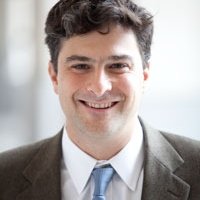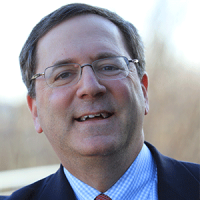Prospects for a Nuclear Agreement with Iran: A Discussion in Honor of Michael Adler
Three experts discussed the Iranian nuclear negotiations and the prospects for an agreement in an event honoring the late Michael Adler, former public policy scholar at the Wilson Center.
On November 12, 2014, the Middle East Program of the Woodrow Wilson Center hosted a meeting “Prospects for a Nuclear Agreement with Iran: A Discussion in Honor of Michael Adler” with Robert Litwak, Vice President for Scholars and Academic Relations, Woodrow Wilson Center; Mark Mazzetti, former public policy scholar, Woodrow Wilson Center, and national security correspondent, New York Times; and David Sanger, former public policy scholar, Woodrow Wilson Center, and chief Washington correspondent, New York Times. Jane Harman, Director, President, and CEO of the Woodrow Wilson Center, provided opening remarks. Haleh Esfandiari, Director of the Middle East Program at the Wilson Center, offered closing remarks. The event honored Adler, whose work improved the quality of public discourse on the issue of Iranian nuclear negotiations.
Litwak started the discussion by suggesting that a deal should be considered as a tradeoff between technologies and transparency. Iran's mastery of uranium enrichment creates the potential—a hedge—for obtaining nuclear weapons. The main focus of negotiations between Iran and the P5+1 (the permanent members of the UN Security Council plus Germany) is to extend the "breakout" period that Iran would need to convert the hedge into a weapon. The talks have also become a proxy for the status of the broader U.S.-Iranian relationship; the talks represent how Iran may interact with the international community in the future, and how the United States, in turn, may engage with “rogue” or “outlier” states in a post-9/11 world. Litwak stated that there are three possible outcomes to the negotiations. The first possible outcome is a breakthrough that benefits both countries and allows for more cooperation. The second possible outcome is a breakdown, which may not necessarily result in a breakout for Iran, but the issue of U.S. military action against Iran’s nuclear program may be reintroduced. The final outcome would fall between the two possibilities, with the two sides muddling through negotiations. He concluded by encouraging Iran to take the opportunity to reach a deal.
Sanger began by highlighting two perspectives on the issue. The first perspective is held by Congress and many in Iran: this is a political deal. The second perspective is how President Obama approached the deal: through technicalities, where the deal is as much about physics as it is about politics. He discussed the various pathways Iran has to a bomb, each of which the United States must cut off. In addition to concerns over Iran’s reactors, its ability to enrich uranium, and its amount of centrifuges, Sanger noted the threat of Iran’s covert pathway to a bomb. He ended by describing the three separate deals involved in a final agreement: that between U.S. and Iranian negotiators, that between President Rouhani and Supreme Leader Ayatollah Khamenei, and that between President Obama and Congress.
Mazzetti discussed how prior to the rise of ISIS, Iran was heavily involved in Syria while the United States had separated itself from the conflict. Once ISIS destabilized Iraq, however, the United States became involved and the two states had a shared interest. With the United States reaching out for help with ISIS, Iran sees the new American interest as leverage. However, Mazzetti believes that Iran is overplaying its hand; it is overstretched in the region and the pressure of sanctions and the falling price of oil has strained its economy. While the battle against ISIS will last for years and the two countries will have a shared interest, he emphasized how the future of Syrian President Bashar al-Assad in the long run will bring Iran and America into conflict once again. Esfandiari provided closing remarks for the event by explaining how Adler had been working on a book about the nuclear talks and highlighting his commitment to providing in-depth coverage of the negotiations.
By John Daniels, Middle East Program
Speakers



National Security Correspondent, The New York Times, and former Wilson Center Public Policy Scholar

White House and National Security Correspondent and Senior Writer, The New York Times.
Hosted By

Middle East Program
The Wilson Center’s Middle East Program serves as a crucial resource for the policymaking community and beyond, providing analyses and research that helps inform US foreign policymaking, stimulates public debate, and expands knowledge about issues in the wider Middle East and North Africa (MENA) region. Read more
